Why Apple's Privacy Update May Not Be What It Seems
Written on
Chapter 1: Introduction to Apple's Privacy Update
Many users of iPhones perceive the iOS 14 privacy update as a clear indication that Apple is committed to safeguarding their data. However, one must wonder if Apple is leveraging its privacy-centric image to gain an edge over rivals like Facebook and Google in the advertising arena.
If you prefer a visual explanation, check out this video:
This video discusses the implications of Apple's privacy update and why it might not be as altruistic as it appears.
Section 1.1: The Launch of App Tracking Transparency
In 2020, Apple revealed a significant update to privacy features in iOS 14, introducing prompts that request user consent for tracking across different applications and websites. This new capability, known as App Tracking Transparency, allows users to see who is monitoring their activities and for what purpose.
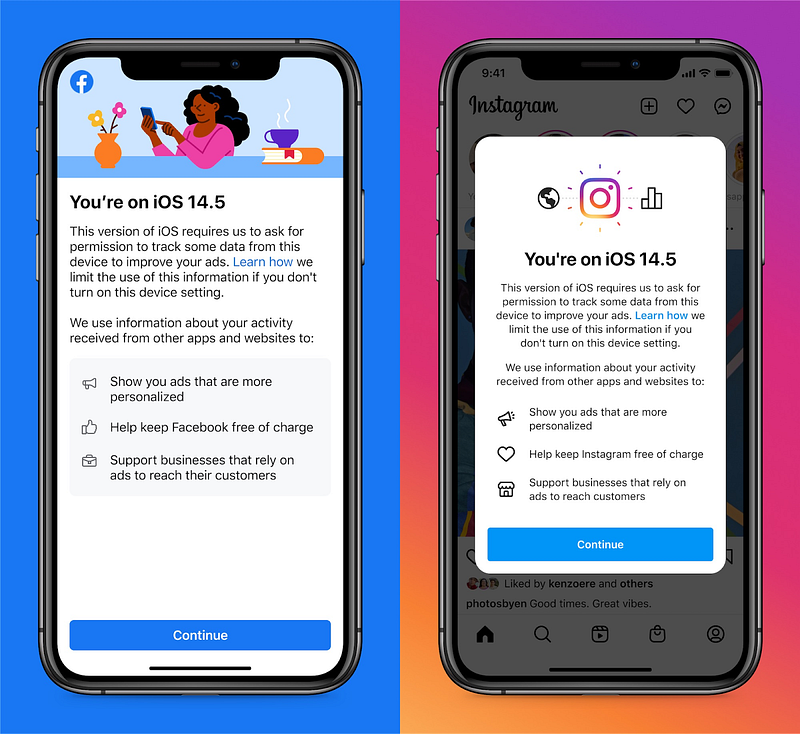
This was a considerable achievement. Users could finally navigate online without the constant worry of being surveilled by various companies. Additionally, Apple could emphasize its commitment to consumer privacy, reinforcing its status as a defender of user rights. However, did Apple really employ this reputation to disrupt the advertising industry?
Section 1.2: The Reactions from Competitors
Not everyone welcomed this update, particularly Facebook. The implementation of this feature would enable users to surf the web with enhanced privacy and control, but it also threatened Facebook's advertising revenue. If iPhone users decided to opt out of tracking, how would Facebook advertisers identify their target audience?
Facebook was not alone in its concerns, but it was the most outspoken. The company even took out advertisements in prominent publications like The Washington Post, The New York Times, and The Wall Street Journal, describing Apple's move as "harmful" and positioning itself as a champion for small businesses.
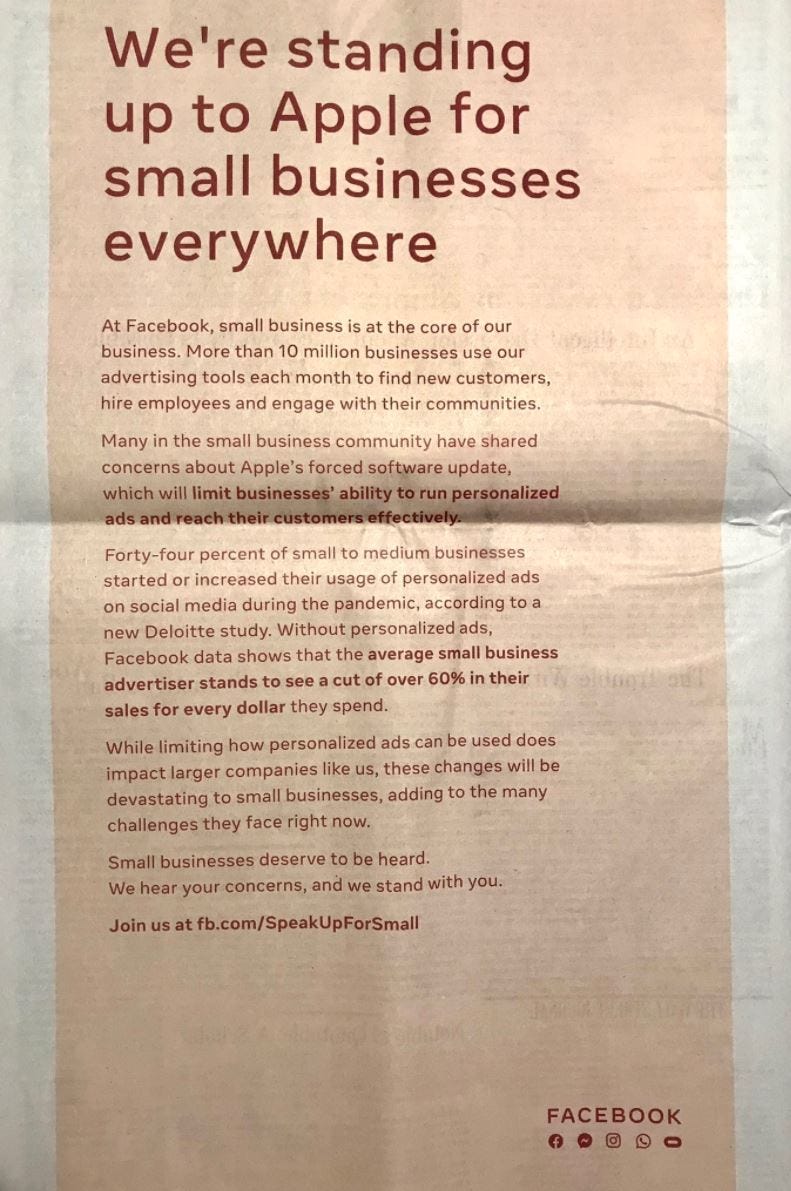
Despite these efforts, Apple remained resolute in its decision:
“We believe users should have the choice over the data that is being collected about them and how it’s used. Facebook can continue to track users across apps and websites as before; App Tracking Transparency in iOS 14 will just require that they ask for your permission first.” — Tim Cook
Chapter 2: The Rollout and Impact of App Tracking Transparency
After a delay to allow advertisers and developers to adjust, the App Tracking Transparency feature was activated on April 26, 2021. As anticipated, users overwhelmingly chose to protect their privacy. By May of that year, only 11% of users opted in for tracking, and while that percentage has risen since, the impact on the mobile advertising sector was significant.
By February 2022, companies like Meta, Twitter, Snap, and Pinterest collectively saw their market value plummet by $315 billion.
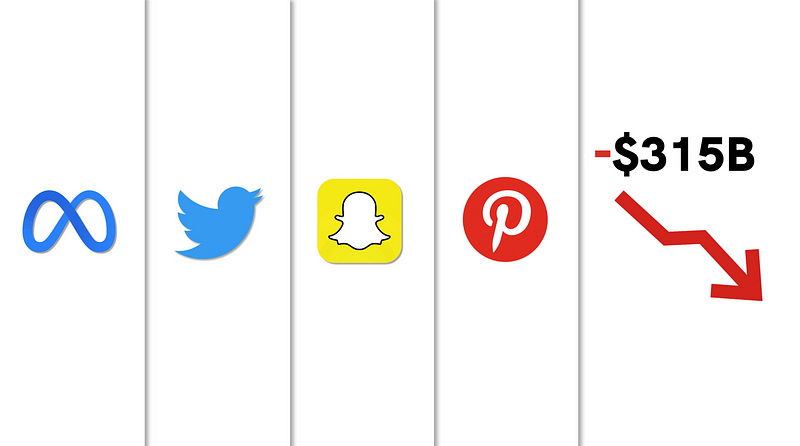
However, not every company faced adversity. For firms like Google, this shift proved to be advantageous. As it became more difficult to reach iPhone users, many advertisers began reallocating their budgets toward Android users. Marketing consultants also benefited, as advertisers sought guidance on navigating this new landscape.
Section 2.1: Apple's Profits Skyrocket
Following the privacy changes, Apple's revenue from search ads surged by over 200%. Unlike Facebook and similar platforms, Apple does not need to request tracking permission, as it does not monitor user activity across third-party applications and websites. Consequently, Apple's app store became a prime target for advertisers, who once allocated their budgets to platforms like Meta and Twitter.
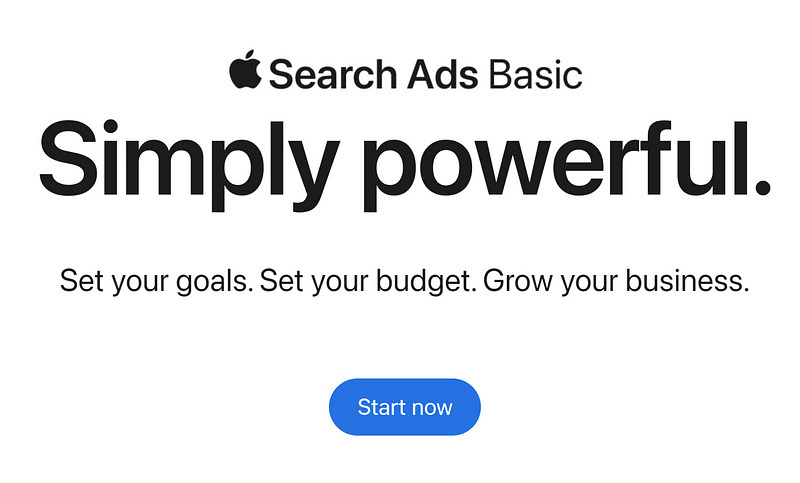
Reportedly, Apple is aiming to further expand its advertising business, with plans to more than double its ad revenue. Before the rollout of the privacy update, Apple had already increased ad space in the App Store's “suggested” section. According to Bloomberg’s Mark Gurman, the company has tested advertisements in Apple Maps and may soon introduce them in Apple Podcasts and Apple Books.
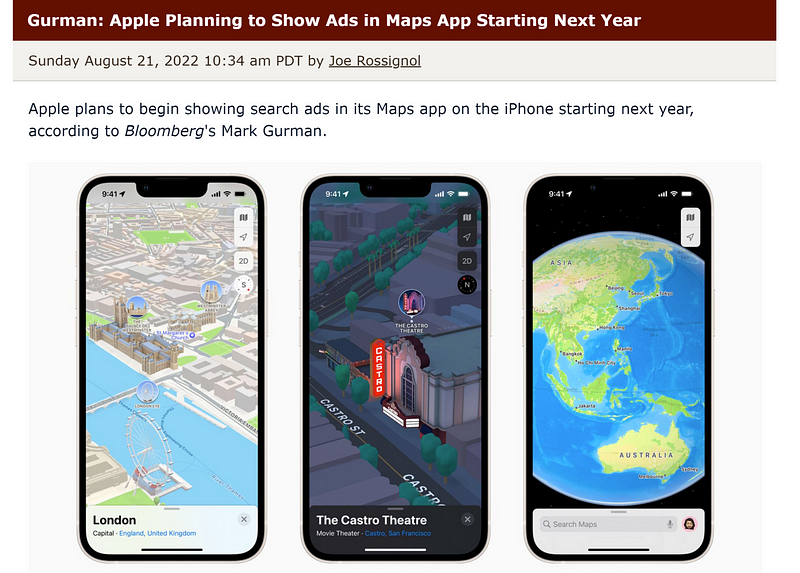
While the privacy update may appear praiseworthy, it raises questions about the company's true intentions.
Serious Question: What are your thoughts on Apple's App Tracking Transparency update? Do you choose to opt in for tracking, and why? Share your opinions in the comments!
Chapter 3: Further Exploration of Privacy Concerns
To delve deeper into the complexities of Apple's privacy policies and their implications, view this insightful video:
This video critically examines whether Apple genuinely prioritizes user privacy or if it's a strategic business move.